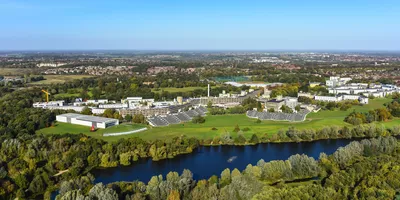Study explores how social movements can use virtual worlds
By: News Archive

Online virtual worlds can help social movements raise awareness and create safe spaces for their members, according to a new study by an academic at the University of East Anglia (UEA).
The research examined how an LGBT group used a virtual world for their own cause, which was different to its intended design. These worlds are immersive, three-dimensional environments, where users create an avatar, or character, that enables them to interact with other users.
The study, by Dr Brad McKenna of UEA’s Norwich Business School, focused on the game World of Warcraft (WoW) and analysed data from an LGBT ‘guild’ within it. It looked at how its members used the technology compared to ordinary game play.
The guild, known as ‘Alpha’ for the purposes of the study, was created to “better service the LGBT community and offer a safe, inclusive place to game for members of any sexual orientation or gender identity”. The group was the largest special interest guild in WoW, with up to 7800 members during the course of the study. There were approximately 15,000 characters in the guild, as it was possible for one player to have multiple characters.
The group held regular activities inside the game, including an annual Pride parade, model competitions and dance parties. The movement also had a website with discussion forums.
The findings, published in Information Systems Journal, show how members used the game’s features and virtual environment for their specific needs and objectives. For example, in ordinary game play, players have spells they can use in battle against others. However, the members used these as lighting effects to create an atmosphere during the parade and dance party.
They also show how the group navigated changes made to the game by the developers. On one occasion, the parade route had to move when the virtual landscape it previously went through changed after an update.
Another change involved introducing a cap on the size of guilds because the developers found that large ones did not function well in the system. This saw the group having to come up with creative ways to continue their existence without losing members.
To conduct his research Dr McKenna joined the LGBT guild, with permission from its leaders, and participated in their movement over a period of 18 months. He created an avatar, which became his identity when in WoW.
“This study provides some practical examples of how virtual worlds can act as a safe haven for social movements or to create awareness, for example about for LGBT issues, within a broader gaming community,” said Dr McKenna, a lecturer in information systems. “Many group members came from countries that do not support LGBT rights, so this was a safe space for them.
“By understanding the affordances, or possible actions, available to them groups can shape how the world works for them and think of more creative uses of the technology and features, using them in a much different way, without involvement from the game’s developers.
“This paper also raises some important issues for virtual world social movements. If a movement wants to use these worlds to advance their cause, their leaders and members need to be aware of what the virtual world can offer them and how they could use that to their advantage, or be aware of actions which could potentially be a hindrance to their cause.
“Social movements also need to be aware of the type of virtual world they might use, for example a social virtual world, or a gaming virtual world, as depending on the type, different limitations or affordances might impact the movement.”
Other social movements have previously used WoW, for example to raise awareness for breast cancer, for political rallies and environmental protests. Dr McKenna said the findings may have implications for other users of virtual worlds and businesses.
“Different online communities could use these ideas, look at how the technology can be shaped for their causes. For organisations which operate within virtual worlds, these findings begin to shed light on the issues faced, and suggests that they need to be willing to evolve if they want to continue operating in these environments, which may constantly be changing.
“Going forward, social movements may make use of other emerging technologies, such as virtual or augmented reality. Insights from this study could provide the analytical tools necessary to understand how different technologies impact LGBT and other movements.”
The main sources of data in the study were participant observations, discussion forum data (128,773 posts downloaded), and chat logs. Additional sources included documents from the LGBT movement’s website, other WoW websites, patch notes about changes to the game’s implementation, and informal conversations with other WoW players.
‘Creating Convivial Affordances: a Study of Virtual World Social Movements’, Brad Mckenna, is published in Information Systems Journal.
Related Articles

Could ‘digital’ smell training restore your sense of smell?
Researchers at the University of East Anglia (UEA) are launching a ground-breaking project to improve the lives of people affected by smell disorders.
Read more
Nurses worldwide rely on intuition to triage patients
Nurses around the world use intuition to work out how sick a patient is before triaging for treatment according to new research from the University of East Anglia.
Read more
British sex lives revealed in new study
A new study published today shows the number of sexual partners we have changes as we age and there are some surprising results.
Read more